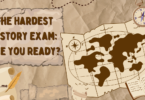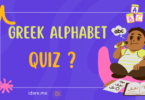Start Quiz
1_ Mandela Effect Quiz: Test Your Memory Against Collective False Memories
The Mandela Effect quiz challenges how well you can remember iconic pop culture moments and details. From famous movie lines to brand logos, this quiz explores the curious phenomenon of collective misremembering, where large groups of people recall details differently from reality. Named after Nelson Mandela, whose death was misremembered by many as occurring in the 1980s rather than in 2013, the Mandela Effect sheds light on the fascinating quirks of human memory.
If you’ve ever questioned whether the Monopoly Man has a monocle or if the Fruit of the Loom logo includes a cornucopia, you’re not alone. Ready to test your knowledge? Dive into this mind-bending trivia and discover how much the Mandela Effect has reshaped your memory.
2_ What is the Mandela Effect?
The Mandela Effect refers to instances where large groups of people recall something incorrectly. These errors often involve pop culture, historical events, or even everyday logos. It’s not about faulty individual memory but rather a shared misremembering among many.
Psychologists attribute the Mandela Effect to false memories, memory distortion, and cognitive bias, where our brains fill gaps with information that “feels right.” While some embrace theories like parallel universes or alternate realities, science points to phenomena like the social contagion of memory—how one person’s error can spread to others.
3_ The Origin of the Mandela Effect
The term “Mandela Effect” was coined by Fiona Broome, a researcher who noticed a significant number of people believed Nelson Mandela died in the 1980s while he was still alive. This collective misremembering sparked the idea that our shared reality might not be as consistent as we think.
4_ How Does the Mandela Effect Work?
Our brains rely on patterns and shortcuts to process and recall information. These cognitive shortcuts make us susceptible to memory distortion, where gaps in memory are unconsciously “filled in.” Factors contributing to the Mandela Effect include:
- Confabulation: Combining real memories with fictional details.
- Social Influence: Widespread errors reinforced by others’ beliefs.
- Media Simplification: Misquotes and altered visuals that become normalized through repetition.
5_ Popular Mandela Effect Examples
These iconic cases will challenge what you thought you knew:
- Berenstain Bears vs. Berenstein Bears: The beloved children’s series is spelled with an “a,” not an “e.”
- Curious George’s Tail: This playful monkey never had a tail, contrary to many memories.
- Fruit of the Loom Logo: The logo never featured a cornucopia, despite vivid recollections.
- Monopoly Man Monocle: The Monopoly mascot never wore a monocle—perhaps a mix-up with Mr. Peanut.
- “Luke, I am your father”: Darth Vader’s actual line in The Empire Strikes Back is “No, I am your father.”
- Dolly’s Braces in Moonraker: Fans recall Dolly having braces in the James Bond film Moonraker, but she never did.
- Kit Kat Logo: There’s no hyphen in “Kit Kat,” though many believe otherwise.
- Oscar Mayer vs. Oscar Meyer: The famous hot dog brand spells “Mayer” with an “a,” not an “e.”
6_ Why Do So Many People Misremember?
Scientists offer several explanations for the Mandela Effect:
- False Memories: Misinterpretations or distortions of past events.
- Social Contagion of Memory: Misinformation spreading through conversations or media.
- Cognitive Bias: Preconceived notions affecting perception.
Some embrace speculative theories like glitches in the matrix or parallel universes as explanations for this phenomenon, adding intrigue to these memory mishaps.
7_ Quiz Mandela Effect: How to Play
Take the Mandela Effect quiz and explore 16 tricky questions about common false memories. Each question will present a scenario or statement, and you’ll decide if it’s fact or fiction. Example prompts include:
- Did Smokey Bear ever have “the” in his name?
- Does the Queen song We Are the Champions end with “of the world”?
- Was there ever a movie called Shazaam starring Sinbad?
8_ FAQs About the Mandela Effect
What is the Mandela Effect?
The Mandela Effect is a shared phenomenon where groups of people misremember events or details.
How did the Mandela Effect get its name?
It’s named after Nelson Mandela, whose death many incorrectly remembered as occurring decades before it actually did.
What are some of the most common examples of the Mandela Effect?
Examples include the Berenstain Bears spelling, Darth Vader’s misquoted line, and Curious George’s lack of a tail.
Is there a scientific explanation for the Mandela Effect?
Yes, it’s often explained through false memories, cognitive biases, and the social contagion of memory.
9_ Take the Mandela Effect Quiz Today
Are you ready to test your memory? Play the Mandela Effect trivia game online and see how well you recall pop culture’s most debated moments. Share your score with friends and see who remembers reality best!
Start Quiz Now!




